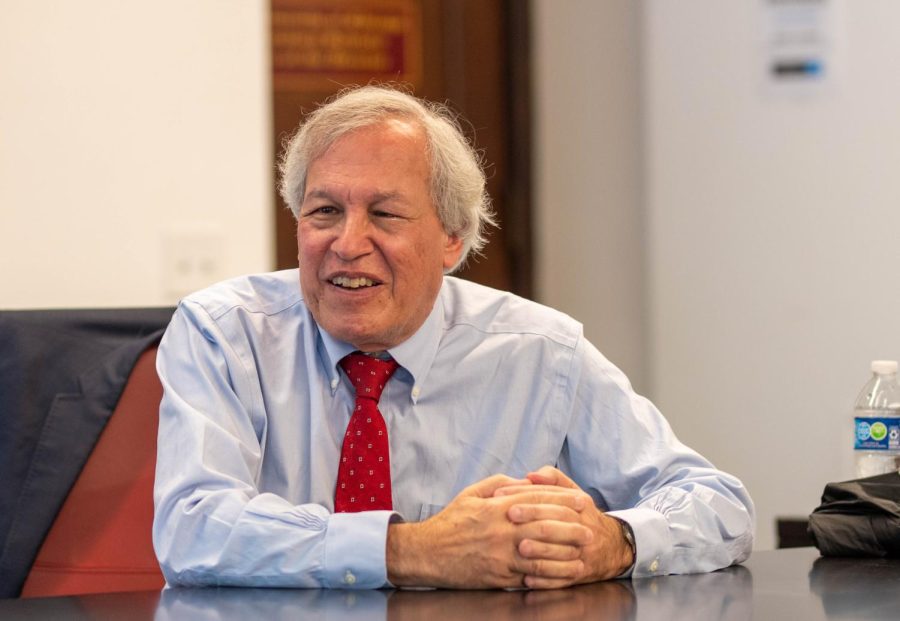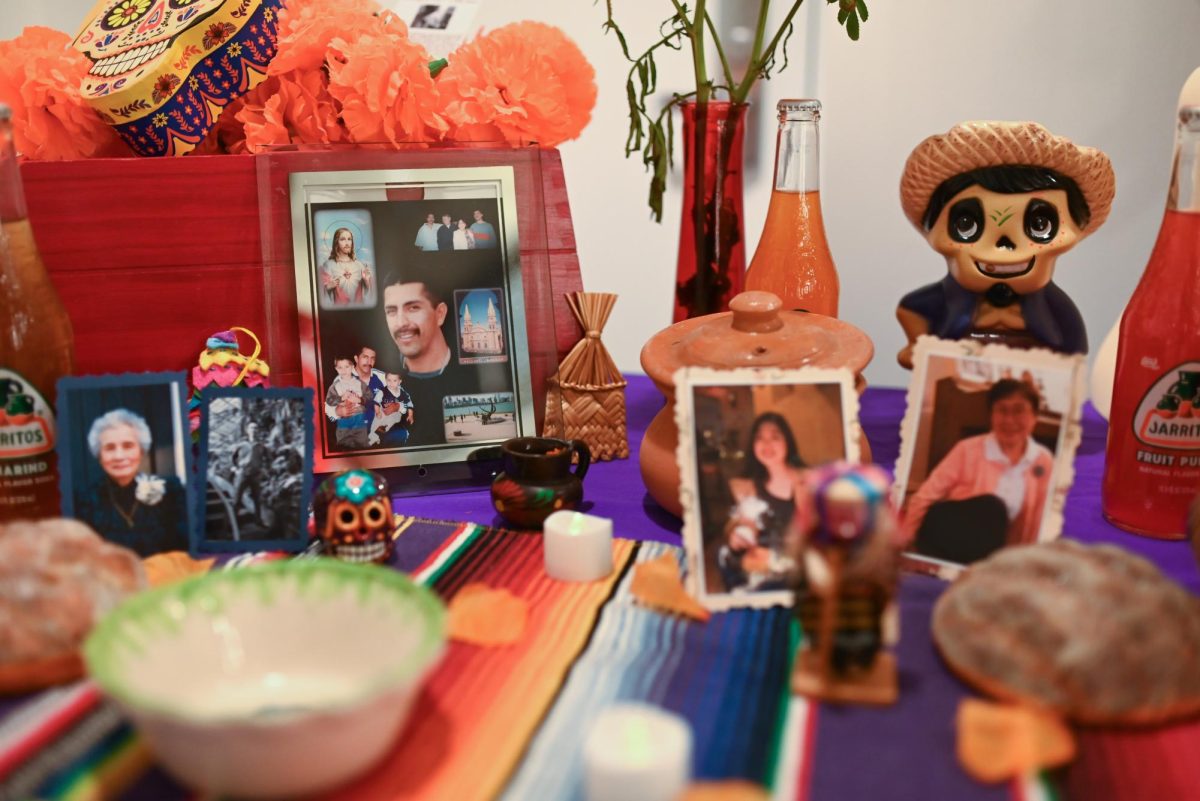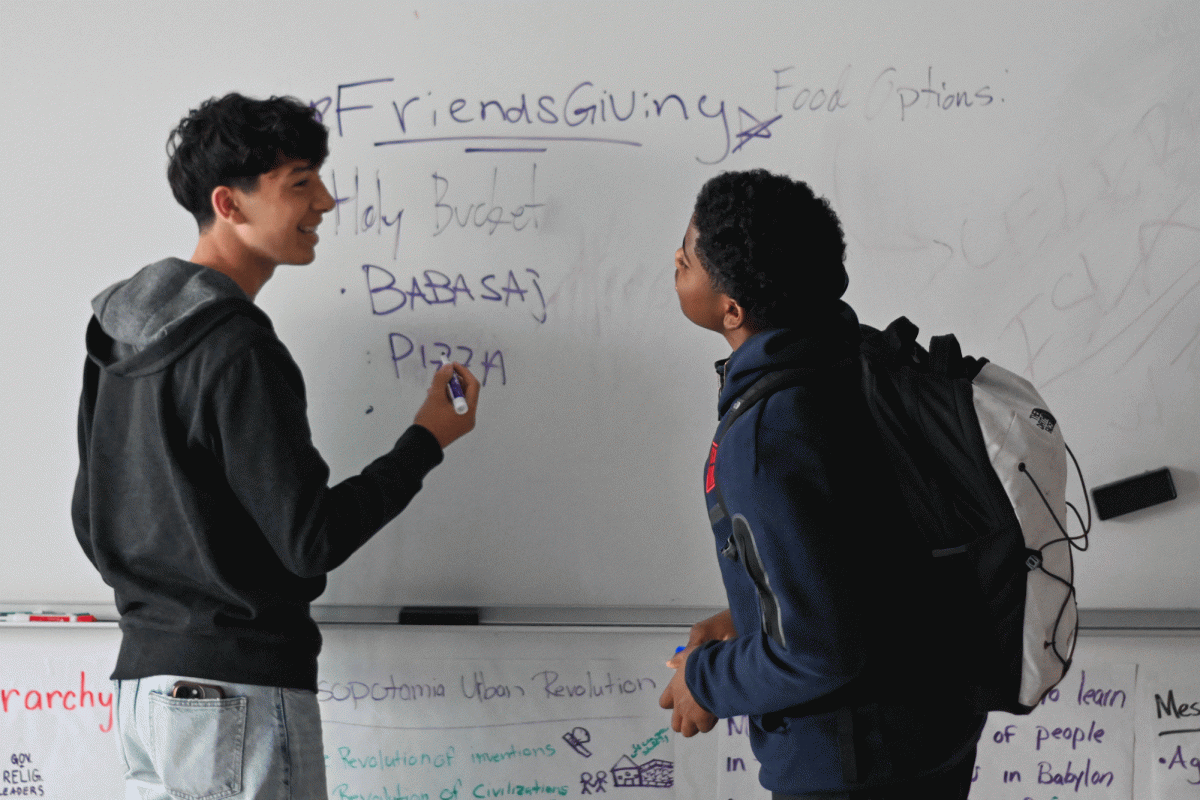From debate team to law school dean, Chemerinsky lives Lab’s values
Dean of the UC Berkeley School of Law Erwin Chemerinsky speakes to students and faculty at a Maroon Mentor lunch hosted by the Maroon Key Society on May 19.
May 24, 2023
It’s a Friday afternoon in the fall of 1967. Erwin Chemerinsky, a new and introverted ninth grader, has just finished his first few days at U-High. After seeing a debate team flier on a bulletin board, he stops into the first meeting, where he finds Earl Bell, an intimidating and outspoken debate adviser.
There was nothing welcoming about it.
“He was very gruff. He was very demanding, and most people quit at that. They didn’t stay,” Mr. Chemerinsky said. “I don’t know why I stayed.”
Mr. Chemerinsky, a member of the Class of 1971 who is now dean of the University of California, Berkeley, Law School and a well-known constitutional law scholar, received the Laboratory Schools’ Distinguished Alumnus award on May 20. He said his experiences at U-High — especially on the debate team — formed his fundamental ideologies and ultimately led him to his vast career in law.
“I think that was probably the largest influence,” Mr. Chemerinsky said of his time on the debate team. “The debate experience was life changing.”
Mr. Chemerinsky is the author of 16 books, including works on criminal procedure, federal jurisdiction and the Supreme Court. He has been president of the Association of American Law Schools, a fellow of the American Academy of Arts and Sciences and previously taught law at Duke University and University of Southern California.
His leadership at Berkeley Law comes at a moment of volatility at universities around the country when it comes to how far free speech should go and which speakers should be given a platform. Mr. Chemerinsky, who co-wrote a book about campus free speech, has recently seen such questions play out at his own law school over whether supporters of Zionism should be banned for speaking at certain events.
“I think that there are more students now than there used to be that question the value of free speech,” Mr. Chemerinsky said, “and more students who may want to stop the speech they don’t like.”
Mr. Chemerinsky’s law school also drew national attention late last year when he announced that it was among top-rated law schools withdrawing from participating in the well-known U.S. News rankings.
“I have been complaining about the U.S. News rankings of law schools, probably throughout my career,” he said, “but certainly as long as I’ve been a dean, and there are aspects of their metrics that are very inconsistent with our values.”
Mr. Chemerinsky came to Lab in ninth grade. Unlike most of his peers, he did not live in the Hyde Park area and would be the first in his family to graduate from college. For all four years at U-High, he was the only student to live in his neighborhood on the far South Side. He recalled hearing about other students’ global summer trips. The farthest he had ever been from home was to his uncle’s house in Gary, Indiana.
“I felt just very out of place. These were kids who seemed so comfortable being there — they were part of the University of Chicago — and I felt very much the outsider. Some of that was being 14. But some of it was being from a very different background.”
Mr. Chemerinsky’s reserved personality only added to his challenge to fit in at U-High, he said. Still, he found a place for himself after that first debate team meeting he attended by chance.
“You know, as a shy kid, I don’t know why an activity based on public speaking would appeal to me,” he said. “I really don’t know why. ”
Mr. Bell, who was the debate team coach, played a key role in Mr. Chemerinsky’s interest in debate. The coach, who went on to teach history at U-High for decades, was also new to Lab during Mr. Chemerisnky’s first year and took him under his wing. He worked with the debate team every day after school. He drove them to tournaments. He even talked to Mr. Chemerinsky at night on the phone to walk through debate strategy.
“He took real interest in me and was a tremendous mentor,” Mr. Chemerinsky said. “He not only taught debate skills, he taught life skills.”
Mr. Chemerinsky said he largely attributes his growth in confidence, which led him to Harvard Law school, to his experiences in high school debate. He remembered a particular debate tournament from his sophomore year where he was named the top speaker.
“It was tremendous for me to think that I was as good as some of the other people on the debate team — our debate team.” Mr. Chemerinsky said. “I never felt that they were as good as they were. And I think that was an important moment for me.”












